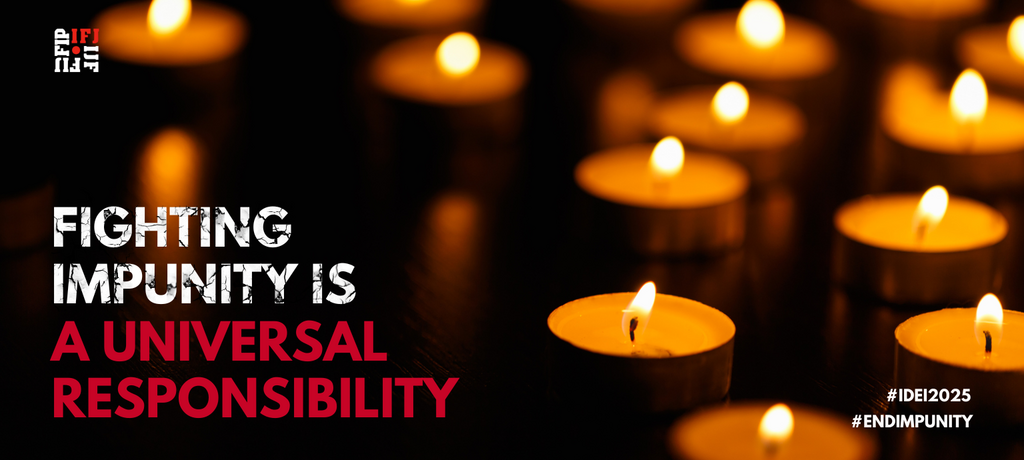On 2 November, the International Federation of Journalists (IFJ) and its affiliates across the world will mark the International Day to End Impunity for Crimes against Journalists.
Since the launch of this commemorative Day by the United Nations 12 years ago, intimidation and violence perpetrated against journalists have continued to grow. Journalists covering demonstrations are beaten,pepper-sprayed or shot with rubber bullets, even though they are clearly identified as ‘press’ on their clothes or vests. News offices are vandalised or raided by unidentified individuals. Women journalists, in particular, are targeted with online hate campaigns, threats of rape or death, and doxxing (revealing identifying information about someone online). In the most extreme cases, reporters investigating organised crime or corruption disappear or are found dead under suspicious circumstances. And many journalists are directly targeted as they go about their business of reporting a war.
Since the beginning of 2025, at least 99 journalists and media workers have been killed in the course of their work, the majority in war zones: 50 in Gaza, Palestine; 8 in Ukraine; and 6 in Sudan, according to the IFJ’s latest statistics.
According to UNESCO, only one in ten journalist murders are investigated. This is a terrible situation, and one that raises questions like the following:
- Who will deliver justice for the murder of Palestinian-American journalist Shireen Abu Akleh in 2022?
- Who will reveal the truth behind the disappearance of French cameraman Frédéric Nérac in Iraq in 2003?
- Who will be held accountable for the abduction of investigative journalist and cartoonist Prageeth Eknaligoda in Sri Lanka in 2010?
- Who ordered the killing of Hugo Bustíos Saavedra, murdered in Peru in 1988 while reporting the truth?
When a journalist is killed and the crime goes unpunished, it is not just a life lost. This tragedy, which is all too common worldwide, also conveys the message that killing journalists is acceptable.
Allowing killers of journalists to walk free sends a chilling signal that the powerful can silence voices, crush families, erase stories and escape accountability. Families of these journalists are left bereft and powerless. Entire communities lose access to vital information. And the collective right to know is stolen.
Fighting impunity is a universal responsibility.
The fight against impunity does not belong solely to journalists. It belongs to us all. Because when a journalist is killed with impunity, the story dies; and when the story dies, our ability to hold power to account dies with it.
Source: IFJ




